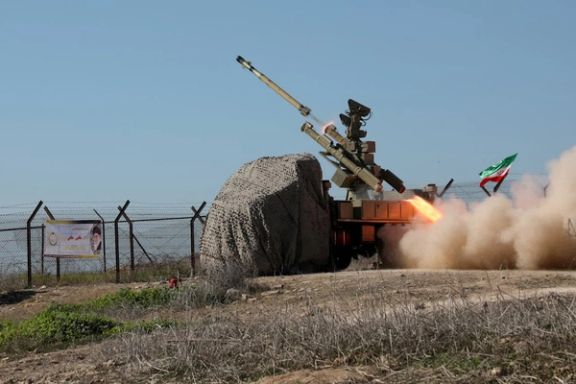Providing no details about what he meant by the term, Hossein Salami stressed that Iran faces no shortages of missiles, drones or naval vessels, calling them key elements of the country’s deterrence strategy.
He also announced that the country will unveil new underground missile and drone cities, highlighting them as symbols of military strength and self-reliance, independent of foreign territories like Syria.
Iranian military commanders have been announcing the procurement of new offensive weapons since their proxies and allies in the region suffered consecutive defeats last year.
Tehran was pushed out of Syria in December after the ouster of its ally Bashar al-Assad from power at the hands of opposition insurgents.
Salami added that Iran does not rely on Syria for its deterrent power, stating, "Syria fell, but we did not rely on military advantages from Syria to an extent that would impact our deterrence."
"Our deterrence is not based on operations from any other land. It is fully rooted in Iranian soil, will, decisions, and actions," he added.
However, since establishing its military presence in Syria in 2011, Tehran has frequently emphasized Syria’s importance to its Axis of Resistance, referring to it as its strategic depth.
Earlier in the week, other IRGC generals announced the procurement of new drones. Iran has also been conducting multiple military exercises in the past few weeks, including air defense drills near nuclear sites like Natanz and a 110,000-strong Basij mobilization in Tehran.
This comes as two senior IRGC commanders said this week that financial constraints and the loss of Syria, a key regional ally, have left the Islamic Republic unable to retaliate against Israel's October airstrikes.
The loss marks one of the most significant setbacks for Iran’s so-called Axis of Resistance in 15 months of conflict with Israel. Tehran, which frames the Axis as legitimate resistance against Israel, has been cautious to avoid full-scale conflict with its better-armed foe.









